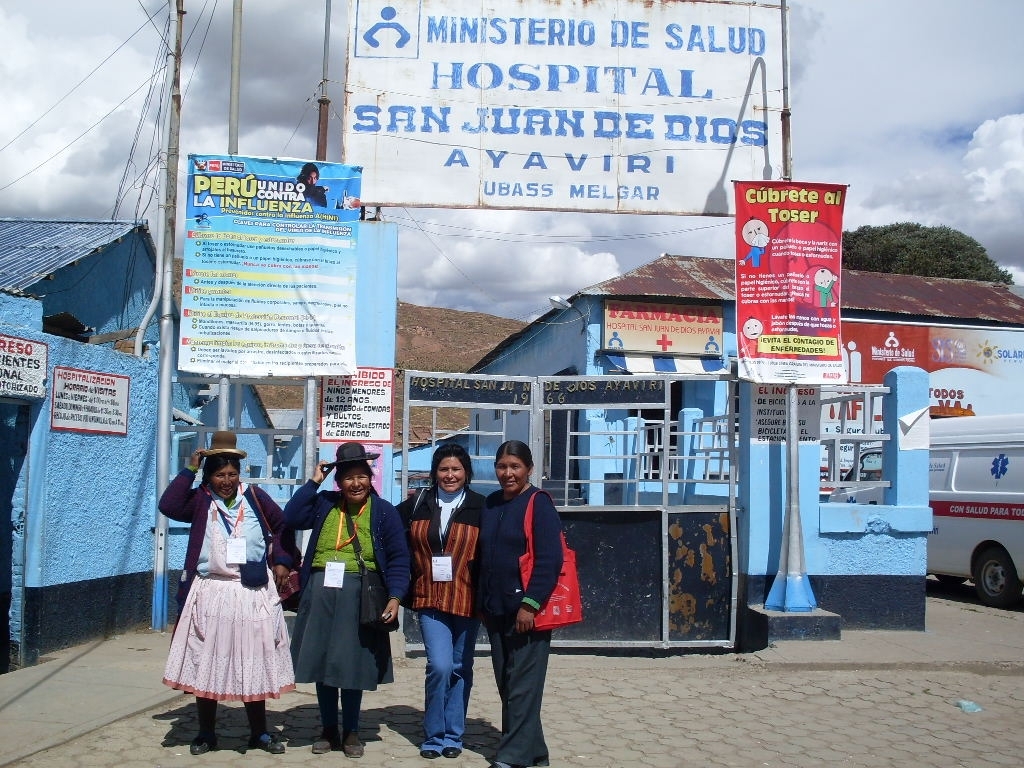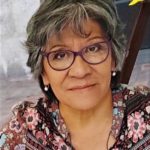Indigenous Groups, Language, and Challenges in the Construction of Concepts Such as the Right to Health and Governance
Versión en español: Pueblos indígenas, idioma y retos para la construcción de conceptos como derecho a la salud y gobernabilidad
In 2007, CARE Peru and ForoSalud, the largest network of civil society organizations in health in Peru, began the process of the participatory construction of a model of “vigilancia ciudadana,” or “citizen oversight.” This would be used to ensure the respect for rights and quality of health services and would be implemented by Quechua women leaders in the provinces of Azángaro and Ayaviri. Women community leaders engaged with local Ombudsman to implement systematic monitoring visits to health facilities, in which they registered the health system’s responsiveness, by talking with rural women using the facilities or by direct observation. The purpose was to hold health authorities and facility managers accountable, focusing on making sure that poor, rural women were receiving the kind of health care services they were entitled to and that they were treated properly, with no discrimination, and with respect for their rights.
One of our first challenges was how to explain “abstract” concepts such as human rights, transparency or accountability, key principles for governance. In the Andean world, vocabulary tends to focus on things that “exist,” things that are tangible, that you can see and touch, and this is reflected in the Quechua language. It is not easy to explain the nature of concepts that cannot be measured, so we showed the concept with examples – one woman represented a newborn baby, and another, their “rights,” who grabbed their arm tightly and didn’t let go. We explained in Quechua that their rights belonged to them from the moment they were born to the end of their lives, and that no one could ever take their rights from them. The women compared the idea of “rights” with their own names, something that had always been theirs and that they would always have.

Photo 1: Citizen Monitors in front of Ayaviri Hospital, Puno, Peru. Photo: Ariel Frisancho
One topic that led me to reflection, however, was that they often seemed to connect the term “rights” with “benefits,” saying “So… when will we have this ‘right’? Who is going to come to give us this ‘benefit’?” This made me reflect on the fact that an equivalent word in Quechua did not exist, not just because of the construction of the concept, but because of a generalized understanding of the actions of the health system – as members of indigenous populations that have historically suffered from poverty, exclusion and discrimination – as a favor or concession that “someone” more powerful grants.
The act of “citizen monitoring,” on the other hand, was assimilated rapidly by the leaders with the Quechua phrase “Riinchis Autoridad kunata tapumuychis, allinta qhaway” (“Go, observe attentively and ask questions”). They chose to call themselves “vigilantes ciudadanas,” or “citizen monitors” in Spanish. It was not hard for them to choose the term: it explained what they themselves were going to do.
The act of “citizen monitoring,” on the other hand, was assimilated rapidly by the leaders with the Quechua phrase “Riinchis Autoridad kunata tapumuychis, allinta qhaway” (“Go, observe attentively and ask questions”). They chose to call themselves “vigilantes ciudadanas,” or “citizen monitors” in Spanish. It was not hard for them to choose the term: it explained what they themselves were going to do. And they did, among other objectives, “to generate transparency.” This concept was understood as such from the explanation given by a delegate of the Ombudsman (Defensoría del Pueblo): first he showed everyone a glass with coins on the bottom, full of very cloudy water. They could not see what was inside. Then, he took out another glass, this time with water that was crystal clear, that allowed them to see the money at the bottom of the glass. He ended the exercise by saying in Quechua: “This is what we want. We want to see the bottom. For everything to be clear, like the water in this glass.” The women agreed, saying “Llipinchispas tukuytan qahuarinanchis,” or “We all should see.”
He ended the exercise by saying in Quechua: “This is what we want. We want to see the bottom. For everything to be clear, like the water in this glass.” The women agreed, saying “Llipinchispas tukuytan qahuarinanchis,” or “We all should see.”
Accountability took place in local hearings held by community leaders responsible for citizen oversight, with local health authorities, hospital directors and managers of primary care facilities. In these local hearings, the “monitors” presented the systematized evidence of their visits: what was being done well, what should be strengthened, and what needed to be corrected and changed (mistreatment, non-compliance with schedules, incomplete delivery of medicines, incorrect or unnecessary charges etc.). In the meetings, the women asked among themselves “Imatan yuyachan nichan?” (“What are they telling you about their truths?”). But they were also interested in knowing what difficulties health professionals had in providing better quality services, “Imata ninki chaymanta,” or “Understanding both sides.”
Building together common understandings of categories and words we are most familiar with from a “western” perspective was a mutually enriching process. We need to learn to listen, with respect and equality, in order to understand each other. To be able to share. To be able to transform.



